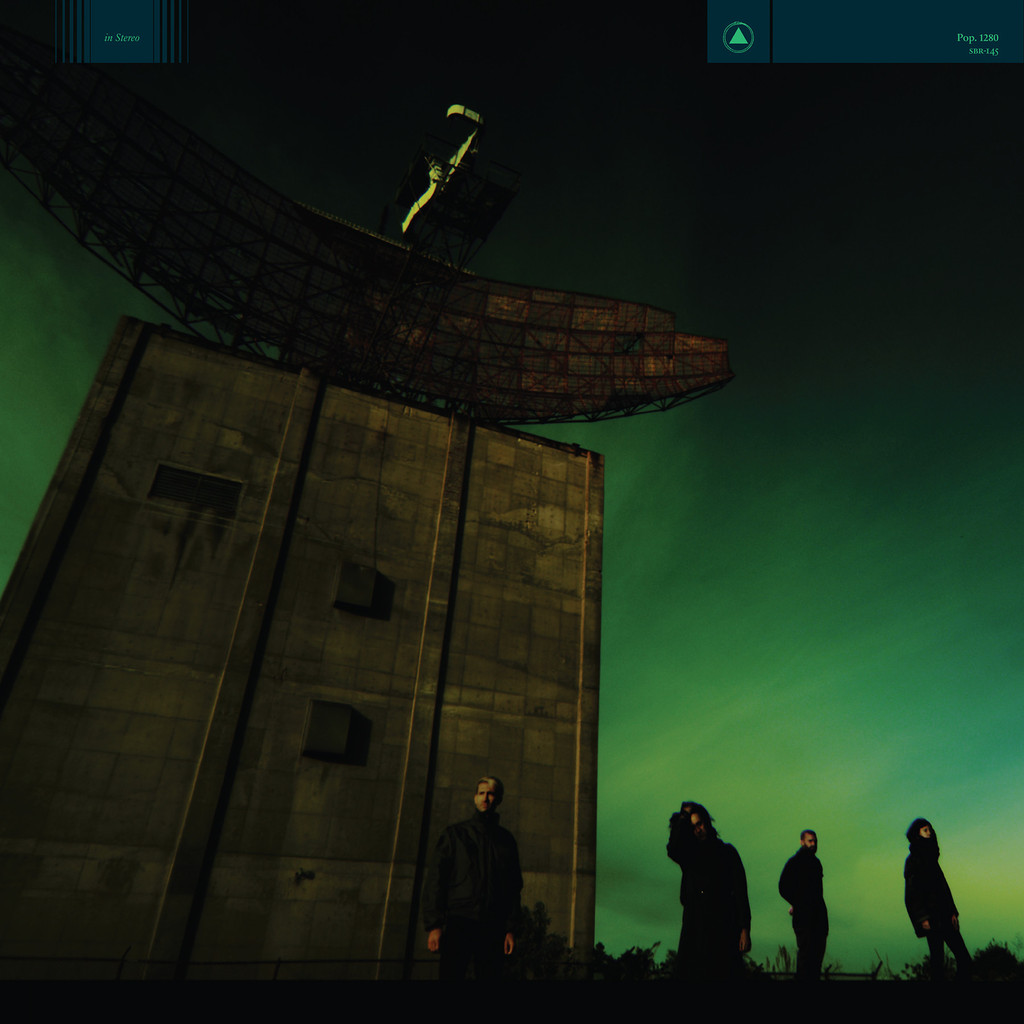National Music Reviews
Pop. 1280
Paradise
Sacred Bones
Street: 01.22
Pop. 1280 = Ministry + The Sisters of Mercy + Killing Joke
Pop. 1280 establish Paradise as an unoccupied city filled with breathtaking buildings and perfectly paved streets. What a waste, considering that the album’s ironic title and industrial cityscapes create an ideal community for humankind’s damned. Owing as much to Harlan Ellison as Ministry circa The Land of Rape and Honey, Pop. 1280 borrow their vocabulary, but they further it to set them apart from their legendary predecessors. They illustrate their fictitious, nihilistic worldview layered in artificial intelligence and diminishing empathy using modern boxes and primitive tools.
Along with the rest of the band, lead screamer Chris Bug weaves together eight vignettes and one instrumental deeply rooted in doom and despair. Beginning with “Pyramids on Mars,” the song’s narrator encounters several characters who try to deter him from discovering what he knows to be true. The mood permits no light inside, with the slowly beaten toms and two-note synth riff. Bug’s Al Jourgensen–esque howls explode over a vintage Bo Diddley beat on “In Silico.” The seven-minute-long lament climaxes with Andrew Chugg’s uptempo drums accenting Bug’s polemical declaration “I dream in infrared!” “Chromidia” fails to yield, with the sci-fi sounds best suited for the upcoming Blade Runner sequel, panning from one circle of hell to the next.
Uniformity and concision sets Pop. 1280’s Paradise from its two previous albums, The Horror and Imps of Perversion. 2012’s The Horror attempted to scare in ways like Bauhaus and Sisters of Mercy had done so flawlessly in the past. Imps of Perversion drew nefarious characters and provided the wretched soundtrack to lives already waist deep in the results of their bad decisions. The synthesis of the first two records bring to head the band’s best laid plans. Paradise’s evenness lies within the sonic and lyrical narratives wound to near symmetrical precision. “USS ISS” charges forward like a line of infantrymen, undeterred from its mission to destroy everything in its path. Like Killing Joke before them, “USS ISS” can do without choruses and conventional arrangements. The song succeeds in its mission, taking no prisoners and leaving nothing in the wake of the band’s destruction.
A sharp shift in mood and timbre drives Paradise off of the cliff during the album’s sole instrumental bearing the same name. Ivan Lipp’s atonal, Daniel Ash–like guitar lines amid heavy drones float over the remainder of the tracks like the eye of a hurricane. The percussion rattles and swings like a train hoping to avoid derailing in “Rain Song.” Bug takes note of how little control individuals have over their own fate, moaning “Invisible hands have invisible plans.” The single-note bassline pulsates indefinitely while advice is rendered to an unnamed character: “You want my advice? Don’t play this game.” Never gaining momentum, “The Last Undertaker” again features Chugg’s dependency on his intermittently-played toms. The beat comes and goes, and comes again. The synth bassline suffocates the desperate breaths taken by the song’s narrator. It never changes—nor does its character’s fate.
Folk tales spun from the future’s dismal end, Paradise makes their brand of catastrophe hymns sound stunning and pleasant. It reminds us that at the end of each day, tomorrow brings with it another Sisyphean boulder to push upwards. And in between each day’s malaise hides our mischief, something Pop. 1280 articulate without shame or judgment.
